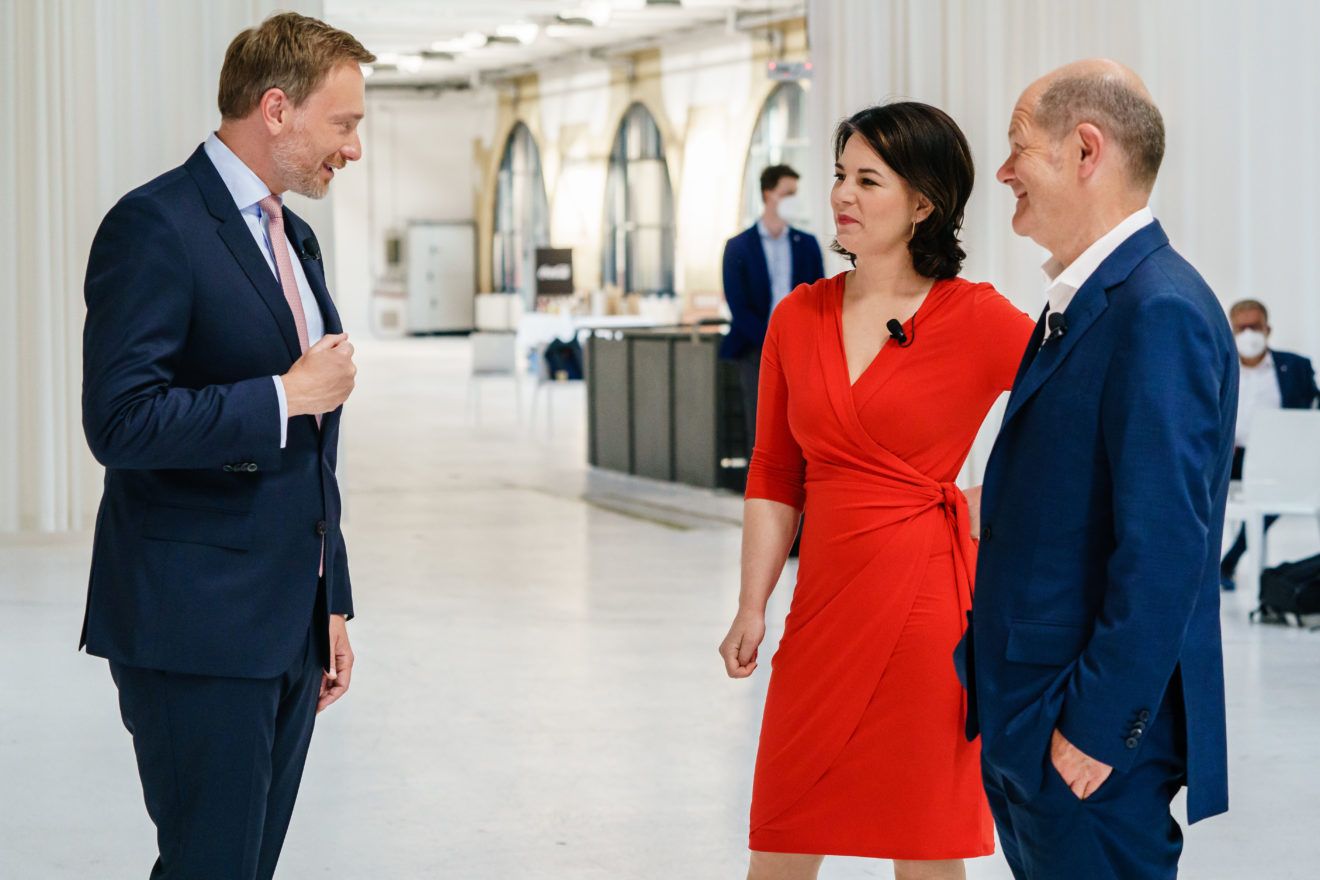Hope Oladipo
On Sunday, September 26th, the German people took to the polls to let their voices be heard in the federal elections. This election was special for two reasons: one, this was the first election where a sitting chancellor didn’t run for re-election. And two, this is the first time Germany will have a new chancellor in 16 years after Angela Merkel’s four consecutive reelections. In Germany, if no party wins an outright majority, parties must form coalitions to gain a majority in parliament and form a government. In the recent election, both major parties received about a quarter of the vote share each with the Social Democrats (SPD) receiving 25.7% of the vote and the Christian Democrats (CDU/CSU) receiving 24.1%. Other, smaller parties, and possible coalition partners, also did well with the Greens taking home 14.8% of the vote and the Free Democratic Party (FDP) 11.5%. Coalition negotiations are currently taking place between the members of the so-called traffic light coalition (SPD, the Greens, and FDP), which would hold a combined share of 52% seats in the Bundestag. (Euronews, The Guardian).
As the party with the largest vote share, SPD opened formal coalition talks on October 15th and negotiations opened on October 27th. SPD, the Greens, and FDP have formed twenty-two working groups to create a consensus between the coalition partners on key issues like the environment and the economy. These working groups have until November 10th to come up with their policy proposals so that party leaders can begin doling out minister portfolios. The three coalition partners have promised to produce a coalition agreement by the end of November, and the new chancellor should be presented to the Bundestag for approval by early December. Following approval, the new chancellor and their Cabinet will be sworn in by the President. Additionally, the coalition must agree on a new president of the Bundesbank as the former president recently stepped down (The Economist).
The allocation of ministry portfolios will be one of the things discussed during party negotiations this November. The most contentious debate is over who will receive the role of finance minister: the FDP or the Greens. It is a role of great importance since the finance minister presides over the creation of the government’s budget. The finance minister also represents Germany in a multitude of international forums, including the Eurogroup and the G20. The finance minister not only influences German economics but the greater economies of the European Union and the world as well. Christian Lindner of the FDP and the Greens’ Robert Habeck both want the job. Despite the foreign ministry also playing a large role in Germany’s international presence, the inheritor of the position of foreign minister isn’t as uncertain or contested. The Green’s co-leader Annalena Baerbock is expected to receive the role of foreign minister during the party negotiations. The presumed decrease in interest towards foreign affairs could be an indicator of the role of the future chancellor in EU politics or the lack of one (Andrea Grunau, DW)(The Economist).
The traffic light coalition would be Germany’s first three-party federal government, which has some theorizing they will focus on creating stability at home. However, the choice for the position of finance minister could have large effects on the future of the European Union. For example, the FDP’s Christian Lindner is against any move to further integrate the economies of the member states. And with Germany being one of the leading economies in the EU, his position would put a pin in any plans for an increase in fiscal integration. This explains why many political thinkers view the position as the most important role besides chancellor. (EPC)(Politico)
No matter the cabinet formed following these elections, the next chancellor will inherit the same daunting host of issues. Namely, Merkel’s central role as a leader in the EU. The former chancellor was integral in making Germany a pivotal voice in European Union politics during recent years. Her leadership was felt during situations such as the Refugee and the Eurozone crises. Experts are debating whether or not her successor will step in to fill this role and what issues they will face. One current concern for the Union includes the populist governments of Poland and Hungary. Their lack of regard for EU policy and ability to avoid punishment has many wondering if the Union has the teeth necessary to enforce rule of law conditionality and other foundational EU tenets currently flaunted in both countries. Another hot topic item on the agenda is the need for a coordinated approach towards China and Russia. Such large issues require the guidance of a strong leader. It remains to be seen if the next German chancellor is ready to step into such a role. (Aljazeera)
Sources
https://www.dw.com/en/why-germanys-finance-ministry-has-become-a-battleground/a-59585908
https://www.dw.com/en/cdu-csu-spd-afd-fdp-left-greens/a-38085900
https://www.aljazeera.com/news/2021/9/13/how-might-merkels-successor-manage-germanys-role-in-the-eu
https://www.politico.eu/article/german-chancellor-please-dont-sacrifice-europe/
https://www.epc.eu/en/Publications/The-debate-on-the-future-of-Europe-has-a-German-problem~41db60
Further Reading
https://www.cfr.org/in-brief/merkels-legacy-and-future-germany
https://ecfr.eu/publication/beyond-merkelism-what-europeans-expect-of-post-election-germany/
